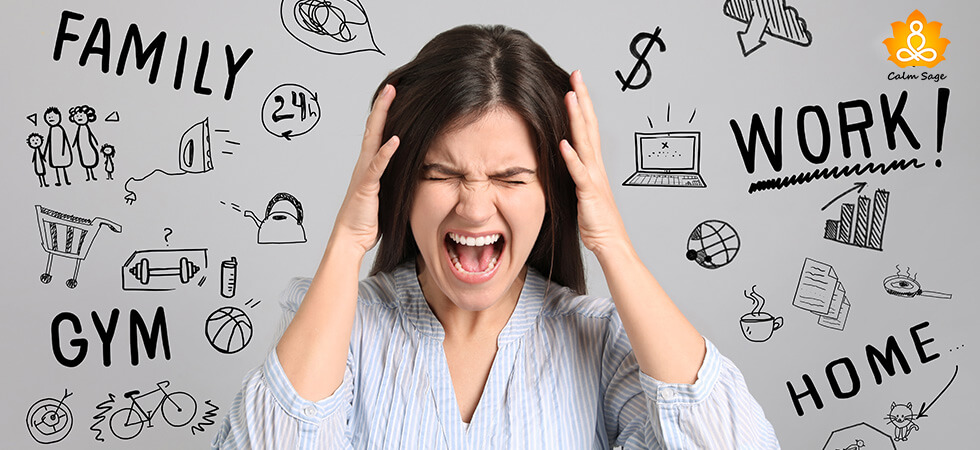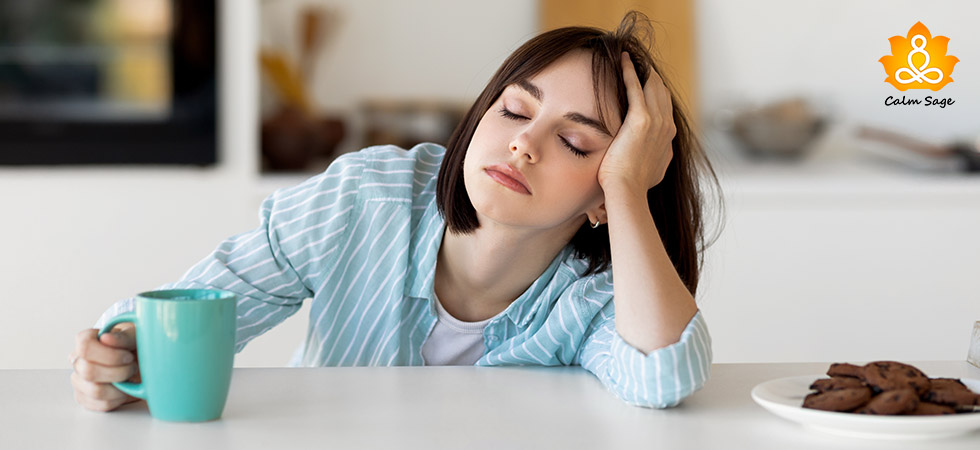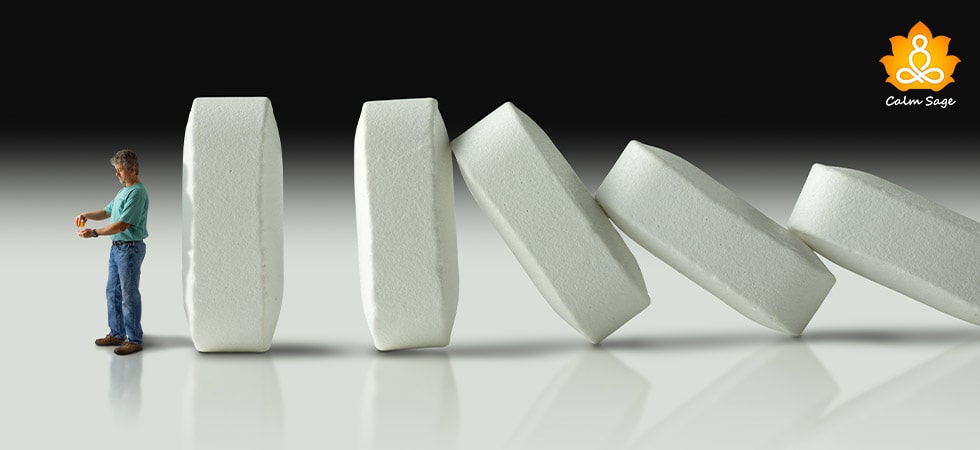Is Micro-Stressors Wreaking Havoc On Your Health? | What Are They & How Can You Manage Them?

Think COVID-19 or a break up from a long-term relationship. These kinds of stressors are easy to notice, right? I mean, when we think of stress, we usually think of the biggest problems of our lives such as pandemic-induced stress, financial stress, workplace stress, etc.
Normally, we don’t even notice the little things or micro-stressors that we experience almost every day.
Stress is one of the biggest health problems, and almost 80% of the world population experiences stress and related disorders. But these are the macro-stressors, the ones easily recognizable.
What about the ones we don’t pay much attention to? The seemingly small, insignificant things such as missing the morning alarm, getting stuck in the traffic, or getting a negative reaction at work.
You might not pay much attention to these small incidents but they cause us to stress nonetheless. Whether you pay attention to them or not, they are, sooner or later going to drain you of your energy if not managed.
Micro-stresses accumulate over time becoming more and more dangerous for our health – mind, and body. The lower our stress threshold, the more possibility of us reacting in the wrong way.
Why do micro-stresses wreak havoc on our health?
Because they are not easily recognizable. How can we address a problem if we are not aware of them? Below are some common reasons that cause micro-stress.
What Causes Micro-Stress?
According to experts, there are 12 main reasons for micro stress that can be categorized into three types of stress that can affect our health:
1. The stress that reduces our personal reserve
The micro stress that reduces our personal reserve may include tensions and clashes with others such as poor communication, misunderstanding between roles or priorities, overload in responsibilities, etc. Simply put, these stresses cause us to either work harder or work extra than our normal capacity.
2. The stress that reduces our emotional reserve
Emotional reserves are what helps us control our emotions under pressure. The micro stress that reduces our emotional reserve is the one where a negative thinking pattern exists such as over-worrying, feeling unsure about our actions, distrust, interacting with negative people, etc.
3. The stress that challenges our sense of self
Our sense of self is most important and this kind of micro stressors involve interactions that challenge our identity or our values such as when we lose self-confidence, feeling low self-worth, or are forced to do something that contradicts our values, etc.
Common Micro-Stressors That You Should Be Aware Of
Here are some common micro stressors that we experience almost everyday and ones you should be aware of:
1. Overthinking
We hold plenty of conversations every day in our social life as well as professional life but sometimes conversations don’t go as smoothly as you might’ve imagined in your head. It’s okay. People who struggle with anxiety are more prone to overthink a conversation and analyze every little thing.
If you find yourself tossing and turning in bed overthinking, then you may be tackling a micro stressor here. I suggest, when this happens, write down what’s on your mind in a journal.
2. Being Negative
When we encounter micro-frustrations, we often tend to use negative labeling such as belittling ourselves or saying something equally negative to ourselves. Yes, being negative to ourselves can also be a micro stressor that you may have ignored before.
The next time this happens, try to change your inner talk from negative to something a little more positive. Trust me, just changing your inner voice can work wonders for your self-confidence.
3. Overworking
Work deadlines, household stuff, etc all need tending to but overworking or over-scheduling yourself beyond your capacity to tackle everything at once is not good. Overworking is another example of stress that you might have ignored before.
The best way to manage this is to balance your work with some downtime. Saying no can be hard for you but is important. Make sure you give yourself time to breathe and de-stress between each task.
4. Being Late
Did you know that being late to a meeting or an event is also micro stress that can impact your health? This micro stress can increase your cortisol levels that, in turn, increases your stress. It could also end up causing a snowfall effect. If you’re late to the first meeting, you’ll end up being late to other appointments as well.
To manage this micro stress, you can try some time management skills and practices. You can also try setting alarms throughout the day to keep you on track (and on time!)
5. Putting Things Off
It seems easy to put off doing tasks for another day but unknowingly this kind of behavior activates micro stress, especially when things are already stressful. Putting things off to do on another day will eventually catch up with you and result in you being stressed out worse than before.
To avoid this, the simple thing to do is stop putting off your tasks. If these tasks are causing you stress, then take a break, divide those tasks into little chunks, make a plan, and then begin work on them.
6. General Disorganization
Clutter and mess are other micro stressors that you should be aware of. If your living space, bedroom, or office space is messy or disorganized, then it is more likely to cause you stress. Imagine not being able to find your keys before leaving the house and you’re already running late! The stress levels will go off the charts, right?
To manage this micro stress, you can try decluttering your living space or workspace, and give a dedicated space to your things that you might easily lose.
7. Minor Arguments
Arguments and disagreements are always stressful but did you know that minor arguments such as arguing with your partner over doing the dishes or a disagreement with a coworker over a font selection can also cause stress?
If you find yourself frustrated with such micro stress, then you can talk about it with the respective person or write them down and see what you can do to resolve such issues. An example; you can try scheduling turns to do dishes.
How To Manage Micro Stress?
There are three steps when it comes to managing micro stressors:
1. Identify The Stress
The first step is to identify the stressor that’s affecting you. Understand the causes listed above and see which one of them resonates with you the most.
2. Step Back & Assess
After you’ve identified your stressor, the next step is to step back and assess the situation. If you feel you need to talk to someone, do it. Detach yourself and analyze the situation before you move forward.
3. Reflect & De-Stress
The third step is to reflect and then act. Here, you need to notice what or who is causing you stress. If the stressor is a negative person, then you need to take a step back from them. Find ways on how you can de-stress. Is meditation helpful for you? Or do you find music de-stressing?
Act on those stress management techniques.
Writer’s Thoughts
Stress is common these days but it’s up to us to understand how we can effectively manage our stress. The key here is to identify the pattern of stress occurrence and make changes to your lifestyle so you can break the pattern and form new, more effective coping strategies to deal with micro stressors.
Micro-stressors are not new but they can be a tad difficult to recognize and deal with. I hope the above-mentioned steps can help you manage your micro-stress. If you’re struggling with managing your stress, then you can always reach out and seek professional help.
You can also connect with us at info@calmsage.com or click here to access online therapy programs.
Found this article useful? Let me know in the comments below and share this with others who might find this helpful!
We’re here for you!
Take Care!




















